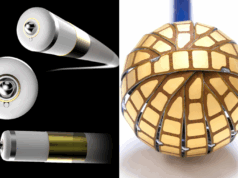 Cardiologs has announced the results of a clinical study showing that its deep learning artificial intelligence (AI) software reduces inconclusive results returned by the latest Apple Watch ECG companion app—Apple ECG 2.0—while maintaining performance (sensitivity and specificity).
Cardiologs has announced the results of a clinical study showing that its deep learning artificial intelligence (AI) software reduces inconclusive results returned by the latest Apple Watch ECG companion app—Apple ECG 2.0—while maintaining performance (sensitivity and specificity).
“Wearable devices, such as the Apple Watch, are capable of recording a single-lead ECG to determine cardiac rhythm. However, a large proportion of the smartwatch readings come back as inconclusive. This problem was solved using Cardiologs’ AI algorithm. The data showed Cardiologs’ AI performed equally as well but, remarkably, the results were almost never inconclusive,” said Laurent Fiorina (Institut Cardiovasculaire Paris-Sud, Paris, France).
The study included 101 patients in a typical tertiary care hospital who were assessed for atrial arrhythmia (AA). It was conducted using simultaneous ECGs: one 12-lead ECG along with single lead smartwatch ECGs taken from the wrist. The smartwatch recordings were then processed to compare the two algorithms’ performances against 12-lead ECG readings by physicians, which is considered to be the gold standard method.
Overall, the Apple Watch ECG 2.0 App yielded inconclusive diagnoses for 19% (19/101) of all SmartWatch recordings. In comparison, Cardiologs’ deep neural network model reduced that number to 0% (0/101) while maintaining performance in accuracy, specificity and sensitivity.
“These results offer great promise for using smartwatches to screen for irregular heart rhythms. Even the latest Apple Watch algorithm returns inconclusive results for one in five patients, which physicians must then review. By eliminating inconclusive results, we can save physicians significant time spent on triage and analysis, and reduce the risk of missed, delayed, or incorrect arrhythmia detection,” said Cardiologs CEO and Co-Founder Yann Fleureau.









